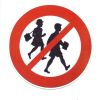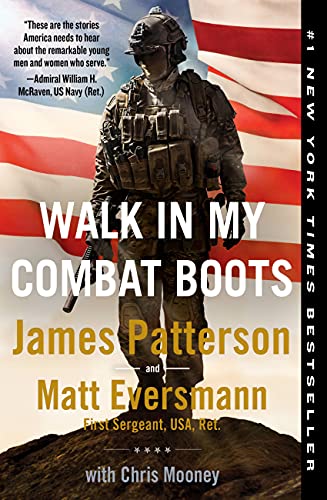20 War Books That Will Change How You See Conflict
Discover War Books trusted by Neil Degrasse Tyson, Peter Hitchens, Martin Dugard, and Bill Clinton for unmatched insights






What if the stories you've heard about war only scratch the surface? War shapes nations and lives, yet its complexity often remains hidden behind dates and battles. Today, understanding war means peeling back layers of strategy, politics, and personal sacrifice that define global conflicts.
Experts like Neil Degrasse Tyson, whose scientific perspective values strategic thinking, and Peter Hitchens, a commentator known for his historical insights, have pointed to works that challenge conventional war narratives. For instance, Tyson highlights Sun Tzu's The Art of War as a timeless guide to strategy, while Hitchens finds fresh perspectives in Stalin's War. Their endorsements reveal how these books illuminate the multifaceted nature of war.
While these expert-curated books provide proven frameworks, readers seeking content tailored to their specific interests, such as modern warfare tactics or colonial conflicts, might consider creating a personalized War book that builds on these insights. This approach lets you dive deeper into the war topics that matter most to you.
Recommended by Balaji S. Srinivasan
CEO and Co-Founder of 21, Board Partner at Andreessen Horowitz
“@ScottFlear In the Asian theater, World War 2 arguably began in 1937 with the Japanese attack on China. One of the interesting things about McMeekin's book is that it unifies the European and Asian theaters from the Soviet perspective.” (from X)
by Sean McMeekin··You?
by Sean McMeekin··You?
What if everything you knew about World War II was wrong? Sean McMeekin argues that Stalin, not Hitler, was the driving force behind the conflict. Drawing on extensive archives from Soviet, European, and US sources, he reveals how Stalin's strategic goals shaped both the European and Asian theaters, including the surprising extent of American and British aid that empowered the Soviet war machine. The book unpacks complex geopolitical dynamics, illustrating how Stalin’s ambitions influenced the war’s trajectory and postwar order. If you're seeking a fresh perspective on WWII that challenges conventional narratives, this book offers detailed insights into the war’s eastern front and global impact, though it demands a serious commitment to its dense scholarship.
Recommended by Martin Dugard
#1 New York Times bestselling author
“Alex Kershaw is the master of putting the reader in the heat of the action. Against All Odds is vivid and compelling, a crisp narrative about heroism, war, and going above and beyond the call of duty.” (from Amazon)
by Alex Kershaw··You?
After exploring countless firsthand accounts and archived interviews, Alex Kershaw presents a vivid chronicle of four Medal of Honor recipients during World War II. You gain insight into their battlefield heroism, personal struggles, and the weight of fame after surviving brutal campaigns from North Africa to Nazi Germany. The book details specific episodes, such as Maurice Britt’s unprecedented valor and Audie Murphy’s rise under fire, offering a nuanced view of courage and survival. This narrative suits anyone interested in the human dimension of war beyond strategy and dates, especially those who want to understand the sacrifices behind medals.
by TailoredRead AI·
by TailoredRead AI·
This personalized book explores the multifaceted realm of war by tailoring content to your interests, background, and goals. It covers core concepts such as military strategy, historical conflicts, leadership dynamics, and warfare evolution while examining the factors that shape conflicts across eras. By focusing on your specific war-related interests, it reveals nuanced perspectives and detailed analyses that resonate with your personal learning path. The tailored content ensures you engage deeply with complex topics like tactical decision-making, geopolitical influences, and the human elements of warfare, making the learning process both immersive and highly relevant.
Recommended by Bill Clinton
42nd U.S. President
“This book will take your breath away, break your heart, and leave you in awe of the hard work, raw courage, ingenuity and resilience of the men and women who wear the boots. You'll hear them say why they do it, and how they deal with triumph, tragedy and living with the legacy of their service. Every American should read it.” (from Amazon)
by James Patterson, Matt Eversmann, Chris Mooney··You?
by James Patterson, Matt Eversmann, Chris Mooney··You?
The breakthrough moment came when James Patterson teamed with First Sergeant Matt Eversmann to capture the raw, unfiltered voices of soldiers from Vietnam through Iraq and Afghanistan. You get a visceral experience of combat and camaraderie through hundreds of firsthand interviews, revealing how warriors confront fear, loss, and survival beyond the battlefield. The book offers you insights into the emotional and psychological toll of service, illustrated in stories that range from tragic to surprisingly human and even humorous moments. If you want to understand what it truly means to wear the uniform and the weight behind a simple "thank you," this collection will deepen your perspective beyond headlines and movies.
Recommended by Ben Dreyfuss
Editorial Director at Mother Jones
“I shall confess that all of my knowledge about the July crisis comes from either the first chapter of Barbra Tuchman’s “Guns of August” or the BBC docudrama “37 Days” starring the actor who played Emperor Palpatine. But that’s a great book and the miniseries is really good.” (from X)
by Barbara W. Tuchman··You?
by Barbara W. Tuchman··You?
Drawing from her distinguished career as a two-time Pulitzer Prize-winning historian, Barbara W. Tuchman examines the pivotal month leading up to and the first month of World War I with remarkable detail and narrative skill. You learn not just the sequence of events but the complex interplay of political miscalculations, personalities, and military strategies that set the stage for a devastating conflict. Tuchman vividly captures the transition from the 19th-century world of monarchies and pageantry to the brutal modern warfare that followed, making the historical figures and their decisions feel immediate and consequential. If you want to understand how a combination of hubris, alliances, and misjudgments ignited one of history’s deadliest wars, this book offers a deeply immersive perspective. It’s particularly suited for those intrigued by military history and the origins of global conflict.
Recommended by Kirkus Reviews
“A wide-ranging survey of the American way of war, expensive and incessant, in support of an empire we’re not supposed to have. . . . Vine offers much to ponder about our militarized foreign policy and its deep antecedents.” (from Amazon)
by David Vine··You?
David Vine, an anthropology professor deeply engaged with military impact studies, offers a sweeping analysis of America's persistent warfare and global military footprint. You gain insight into how U.S. foreign military bases, established over centuries, have entrenched a cycle of interventionist conflicts, impacting both foreign societies and domestic culture. The book scrutinizes the intersections of political interests, economic motives, and social issues like racism and militarism, tying these to current multi-trillion dollar wars and their human cost. Chapters detail historical episodes from Columbus’s arrival to modern conflicts, giving you a broad yet detailed perspective on America's war-driven global role. This book suits those seeking a nuanced understanding of the long-term systems behind U.S. military actions and their worldwide consequences.
by TailoredRead AI·
by TailoredRead AI·
This personalized book explores the intricate world of conflict and war through a tailored, step-by-step learning journey designed to match your background and goals. It examines key principles, historical contexts, and tactical knowledge while focusing on your interests to help you rapidly build a deep understanding of war. The book breaks down complex material into focused daily lessons that guide you through essential concepts and evolving warfare theories. By blending expert perspectives with a customized pathway, this book reveals how conflict evolves and how strategic decisions are shaped over time. It offers a unique chance to engage with nuanced war knowledge at a pace and depth that suits your specific learning needs, providing an enriching and efficient study experience.
Recommended by The Philadelphia Inquirer
“Stunning.... The best single-volume history of the war.... Assembled from a multitude of overlapping voices, American and Vietnamese, [The Vietnam War] tells the long story from every conceivable angle, from veterans and protesters to draft-dodgers and prisoners of war to politicians and grunts.” (from Amazon)
by Geoffrey C. Ward, Ken Burns··You?
by Geoffrey C. Ward, Ken Burns··You?
Drawing from their extensive background in historical documentary filmmaking and scholarship, Geoffrey C. Ward and Ken Burns developed a deeply immersive narrative of the Vietnam War, weaving together firsthand accounts from soldiers, civilians, and officials on both sides of the conflict. You’ll gain insight into the political decisions, battlefield experiences, and social upheavals that shaped this contentious era, including detailed perspectives from chapters focusing on combat intensity and antiwar protests. This book suits those seeking a nuanced understanding of the war’s complexities rather than a simplified recounting, providing rich context to the divisive legacy that still influences American discourse today.
Recommended by The New York Times
“...a mini museum between the covers of a book.” (from Amazon)
After analyzing countless visual archives and firsthand testimonies, DK presents an immersive journey through World War I that goes beyond dates and battles. You gain detailed insights into major events like the Somme and Verdun, enriched by vivid photographic galleries and maps that clarify the war’s progression and technology. The book also spotlights key figures such as David Lloyd George, weaving personal accounts that bring historical moments to life. If you want a richly illustrated, fact-driven exploration that balances strategic context with human experience, this guide will serve you well, especially if you appreciate visual storytelling alongside historical detail.
Recommended by Neil Degrasse Tyson
Astrophysicist and science communicator
by Sun Tzu··You?
by Sun Tzu··You?
Drawing from his experience as an ancient Chinese military strategist and philosopher, Sun Tzu developed The Art of War as a guide to mastering conflict through intelligence and adaptability. You’ll learn key strategies such as exploiting enemy weaknesses, meticulous planning, and the importance of leadership qualities that shape outcomes beyond the battlefield. Chapters delve into tactics, espionage, and flexible thinking, offering insights valuable not only for military leaders but also for anyone navigating competitive or unpredictable environments. If you seek to understand how calculated strategy can influence success, this book offers a timeless framework, though its ancient context may feel less immediate for modern tactical details.
Recommended by Patrick Cockburn
Middle East correspondent for The Independent
“Scott Horton's Fool's Errand is a deeply insightful and well-informed book on America's longest war, explaining why it remains as unwinnable as it ever was. It appears at an important moment as the Trump administration considers once again reinforcing failure.” (from Amazon)
by Scott Horton··You?
by Scott Horton··You?
Scott Horton challenges the conventional wisdom that the U.S. intervention in Afghanistan was a strategic success, offering a meticulous account of how decades of decisions led to a prolonged and costly conflict. You learn detailed insights into the political and military missteps from the 1980s through recent troop surges, including how key administrations misjudged the situation on the ground. The book lays out the case for immediate withdrawal, supported by well-documented evidence and critical analyses of policy failures. Anyone seeking to understand the full scope of America's longest war and its consequences will find this a rigorous and thought-provoking read, though those hoping for optimistic solutions may find it sobering.
Recommended by Andrew Roberts
New York Times bestselling author
“In his exposition of this thesis, displaying a depth of knowledge of the period that is often simply astounding, Hanson has written what I consider to be the most important single-volume explanation of World War II since Richard Overy's Why the Allies Won (1996)-that is, for a generation.” (from Amazon)
by Victor Davis Hanson··You?
by Victor Davis Hanson··You?
The breakthrough moment came when Victor Davis Hanson, a distinguished military historian and classics professor, challenged conventional narratives by framing World War II not as a single conflict but as multiple interconnected wars. You gain a nuanced understanding of how battles unfolded across diverse theaters—from air raids over London to jungle warfare in Burma—highlighting the strategic missteps of the Axis powers. Hanson’s extensive use of 3,000 years of military history enriches your perspective on warfare's continuity and change, especially evident in his analysis of combined arms tactics. This book suits you if you seek a detailed, thought-provoking exploration of World War II’s complexity beyond familiar accounts.
by Alexander L. Sheppard··You?
Alexander L. Sheppard’s deep immersion in world war history, fueled by years of rigorous research and firsthand exploration of battlefields, culminates in this detailed examination of World War II's pivotal battles. You’ll gain insight into both famous and lesser-known conflicts, such as Stalingrad and Midway, learning how each maneuver shaped the broader war and global politics. The book doesn’t shy away from the grim realities, including military strategies and war crimes, offering a nuanced understanding of the conflict’s complexity. If you seek an unfiltered account that connects military tactics with international consequences, this book will sharpen your perspective on WWII’s enduring impact.
Recommended by David Glantz
Coauthor of The Battle of Kursk
“This superb translation will generate widespread and unprecedented interest in the subject. Offering a candid view of a war that played a significant role in the ultimate demise of the Soviet Union, this book presents analysis absolutely vital to Western policymakers, as well as to political, diplomatic, and military historians, and anyone interested in Russian and Soviet history. It also provides insights regarding current and future Russian struggles in ethnic conflicts both at and within their borders, struggles that could potentially destroy the Russian Federation.” (from Amazon)
by Michael A. Gress Lester W. Grau Theodore C. Mataxis··You?
by Michael A. Gress Lester W. Grau Theodore C. Mataxis··You?
What started as a profound exploration by Michael A. Gress, a Siberian native and former Soviet soldier, together with Lester W. Grau, a Vietnam veteran and military analyst, became a detailed examination of the Soviet Union's military campaign in Afghanistan. You gain a nuanced understanding of the tactics, strategic missteps, and political ramifications that defined this conflict, with chapters dissecting combat techniques and the broader geopolitical consequences. This book suits those fascinated by military history and Cold War dynamics, offering insights into why a superpower struggled against guerrilla warfare. It’s less about glorifying battle and more about unpacking the complex failures and lessons within.
Recommended by Timothy Snyder
Author of 'On Tyranny'
“For generations, the Cold War was context, the inescapable setting of political life. This history sets the Cold War itself in context, within the greater landscape of world history, deeply understood, and masterfully presented. It is a powerful synthesis by one of our great historians.” (from Amazon)
by Odd Arne Westad··You?
by Odd Arne Westad··You?
Odd Arne Westad, a Yale professor with deep expertise in global affairs and Cold War history, reshapes the narrative by framing the Cold War as a worldwide ideological struggle rather than a mere US-Soviet standoff. You’ll gain insight into how this conflict influenced regions far beyond Europe, affecting Asia, Africa, and the Middle East, with chapters that trace its roots back to the Industrial Revolution and its continuing impact today. Specific sections analyze how Cold War rivalries shaped modern geopolitics and ongoing conflicts, making it clear this isn’t just history but a key to understanding present global dynamics. This book suits anyone seeking a thorough grasp of war’s global consequences, though those wanting a narrow military focus might find it broader than expected.
Recommended by Nomiki Konst Cancelrent
Host and political commentator
“@BenSpielberg Here’s an amazing book that’s a great starter by Nelson Denis” (from X)
by Nelson A Denis··You?
by Nelson A Denis··You?
Unlike most war histories that focus on battlefield tactics, Nelson A. Denis explores the uneasy intersection of colonialism and armed rebellion through the 1950 Puerto Rican Nationalist uprising. Drawing on decades of journalistic and political experience, Denis spotlights Pedro Albizu Campos's controversial life, revealing how his leadership intertwined with US imperial policies that culminated in the unprecedented bombing of American citizens. You’ll gain insight into the complex political dynamics, covert operations by the FBI and CIA, and the lasting impact of US colonial rule on Puerto Rico’s quest for self-determination. This book suits you if you want a nuanced understanding of war beyond combat, especially its political and cultural ramifications.
Recommended by Ali Shihabi
Founder at Arabia Foundation
“A must read new book: "Conventional war is dying to be replaced by irregular warfare and other instruments of national power such as.......” (from X)
by Sean McFate··You?
by Sean McFate··You?
When Sean McFate, a former 82nd Airborne paratrooper turned professor at the National Defense University, wrote this book, he drew directly from his battlefield experience and academic background to rethink how war is fought today. You’ll learn how traditional concepts of warfare are being overtaken by irregular tactics, shadow operations, and corporate mercenaries, as McFate explains with examples from Vietnam to modern conflicts. His analysis covers the dangers of relying too much on technology and the rising influence of non-state actors, providing a clear-eyed view of contemporary conflict. This book suits anyone interested in military strategy, international relations, or understanding the shifting rules shaping global power struggles.
Recommended by Simon Sebag-Montefiore
British historian and TV presenter
“Scholarly yet fascinating, unsettling in its revisionism yet readable in its macabre narrative.” (from Amazon)
by David Anderson··You?
by David Anderson··You?
David Anderson, an Oxford University lecturer specializing in African studies, offers a nuanced view of the Mau Mau uprising and the British colonial response in Kenya during the 1950s. This book challenges traditional narratives by portraying Gikuyu rebels with empathy while critically examining British military and political actions, including figures like Churchill and MacMillan. You’ll gain insight into colonial power dynamics and the complexities of insurgency, supported by detailed case studies and archival research. The book’s careful exploration of the period’s political context makes it a solid choice for those interested in colonial history and the ethical questions war raises.
Recommended by Lord Guthrie
Head of Britain’s Armed Forces
“I could not have enjoyed it more and think it quite excellent. It is a great pity some of those who involved us in what is going on now did not understand what we would be up against.” (from Amazon)
David Loyn, a veteran BBC foreign correspondent with decades of firsthand experience in Afghanistan, offers a thorough examination of America's prolonged conflict there. You gain detailed insights into the strategic and political errors that shaped the war, including early miscalculations that let Osama bin Laden slip away and the consequences of backing corrupt local allies. The book presents perspectives from top generals like Petraeus and McChrystal, revealing the complexities of coalition warfare and the toll on soldiers and Afghan civilians alike. If you're seeking a nuanced understanding of the Afghanistan war's military and diplomatic dimensions, this book offers a grounded narrative without romanticizing the conflict.
Recommended by Joseph Lieberman
Former U.S. Senator and national security advocate
“The Field of Fight is a book worth reading by anyone concerned about the future security of America. It is both an engaging personal memoir by a great American soldier and military intelligence officer, General Mike Flynn, and a strategic plan by General Flynn of how to win the global war against radical Islam and its big power supporters. The leaders of the next American administration would benefit from reading The Field of Fight.” (from Amazon)
by Lieutenant General (Ret.) Michael T. Flynn, Michael Ledeen··You?
by Lieutenant General (Ret.) Michael T. Flynn, Michael Ledeen··You?
Lieutenant General Michael T. Flynn brings over three decades of military intelligence experience to a direct and urgent examination of the global threat posed by radical Islam and its allies. Drawing from his time coordinating operations and intelligence with top military leaders, Flynn reveals how government missteps have hindered effective responses to groups like ISIS and al-Qaeda. The book offers a clear-eyed analysis of why understanding the enemy is crucial to winning this ongoing conflict, with chapters that dissect the roles of Iran and other state actors. If you want a strategic perspective from a seasoned insider on America's security challenges, this book delivers without sugarcoating the realities or politics involved.
by Arjun Subramaniam··You?
by Arjun Subramaniam··You?
Arjun Subramaniam draws from his extensive career as a retired Air Vice Marshal and military historian to present a detailed account of India's military engagements from 1947 to 1971. He explores not only the battles themselves but also the development of the Indian army, navy, and air force, providing insights on strategy, leadership, and civil-military relations. Through chapters that analyze conflicts with China and Pakistan, you gain a nuanced understanding of operational challenges and lessons, enriched by veterans' experiences. This book suits anyone interested in Indian history or military strategy, though it demands attention to complex geopolitical contexts rather than casual reading.
Recommended by James McPherson
Author and Civil War historian
“A genuinely fresh set of insights about the Civil War. Murray and Hsieh have crafted a military narrative that goes well beyond anything else in the literature.” (from Amazon)
by Williamson Murray, Wayne Wei-siang Hsieh··You?
by Williamson Murray, Wayne Wei-siang Hsieh··You?
What if everything you thought you knew about the Civil War’s military history was incomplete? Williamson Murray and Wayne Wei-siang Hsieh argue that this conflict fundamentally changed warfare by blending industrial-era technology with old uncertainties of battle. You’ll gain detailed insights into how leadership, logistics, and army culture shaped the war’s unpredictable outcomes, with vivid portraits of figures like Lincoln and Grant. This book suits anyone eager to understand not just battles but the evolution of war itself through the lens of the Civil War’s massive scale and complexity.
Get Your Personal War Strategy in 10 Minutes ✨
Stop sifting through generic war books. Get targeted insights that fit your unique interests and goals.
Trusted by 60+ war scholars and military experts
Conclusion
The 20 books collected here weave together themes of strategic innovation, human courage, and the often overlooked political undercurrents of war. From ancient principles in The Art of War to detailed modern analyses like The New Rules of War, these works span centuries and continents to give you a broad but detailed understanding.
If you're grappling with understanding guerrilla conflicts, start with The Soviet Afghan War and Fool's Errand for nuanced perspectives. For a rapid grasp of global conflicts and strategy, combine The Cold War with The Second World Wars to see how ideology and tactics intertwined.
Alternatively, you can create a personalized War book to bridge the gap between general principles and your specific situation. These books can help you accelerate your learning journey and deepen your grasp of war’s complex realities.
Frequently Asked Questions
I'm overwhelmed by choice – which book should I start with?
Starting with The Art of War offers timeless strategies that frame modern conflict. From there, The Guns Of August provides vivid insight into how World War I erupted, setting a foundation for understanding later wars.
Are these books too advanced for someone new to War?
Not at all. Many, like Walk in My Combat Boots, share personal stories that are accessible, while others provide clear historical context. The range ensures both newcomers and veterans find value.
What's the best order to read these books?
Begin with strategic overviews like The Art of War and The Cold War, then explore specific conflicts such as The Vietnam War or The Soviet Afghan War. Finally, dive into personal accounts for emotional depth.
Should I start with the newest book or a classic?
Classics like The Art of War offer foundational insights, while newer works like The New Rules of War reflect current tactics. Reading both in tandem gives a comprehensive view.
Do these books assume I already have experience in War?
No, these books cater to a range of backgrounds. They build from fundamental concepts to advanced analysis, making them suitable whether you're a beginner or experienced enthusiast.
How can I get war knowledge tailored to my specific needs?
While expert books offer broad understanding, personalized War books tailor insights to your background and goals, bridging theory with your unique context. Discover this option here.
📚 Love this book list?
Help fellow book lovers discover great books, share this curated list with others!
Related Articles You May Like
Explore more curated book recommendations



















